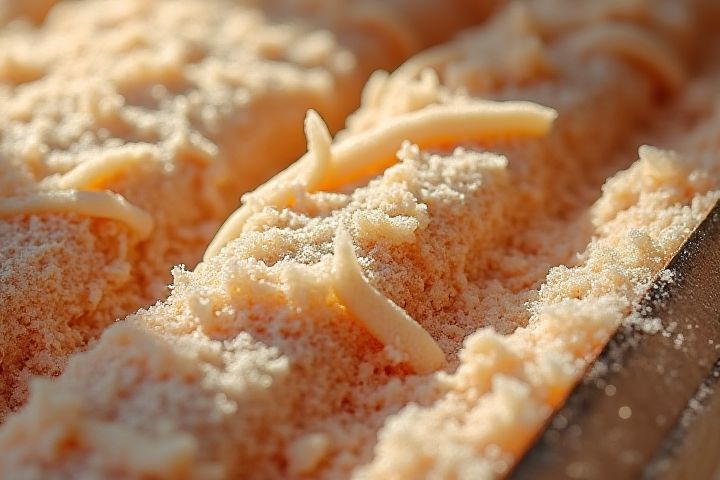
House insulation is crucial for maintaining optimal indoor temperatures, enhancing energy efficiency, and reducing utility costs. Proper insulation minimizes heat transfer between your living spaces and the outside environment, ensuring that your home remains warm in winter and cool in summer. This thermal barrier contributes to a comfortable living environment, reducing the need for excessive heating or cooling. Furthermore, quality insulation can also help mitigate noise pollution, creating a quieter home. Investing in effective insulation materials not only boosts the overall energy performance of your property but also adds to its market value.
Why Is House Insulation Important
Energy Efficiency
House insulation is crucial for enhancing energy efficiency, as it significantly reduces heat loss during colder months and minimizes heat gain in the summer. Proper insulation can lower heating and cooling costs by up to 30%, allowing homeowners to save an average of $400 annually on energy bills. When insulating, consider materials with high R-values, such as spray foam or fiberglass, which provide better thermal resistance. Insulation also contributes to a more comfortable indoor environment, helping maintain consistent temperatures throughout your home.
Cost Savings
Proper house insulation significantly reduces energy bills, with estimates suggesting savings of up to 30% on heating and cooling costs. By creating a thermal barrier, insulation minimizes heat transfer, leading to less reliance on HVAC systems. In colder climates, well-insulated homes can save homeowners an average of $200 to $400 annually in energy expenses. Investing in high-quality insulation not only enhances comfort but also provides long-term financial benefits through reduced utility costs.
Temperature Regulation
House insulation is crucial for temperature regulation, as it minimizes heat loss in winter and prevents excessive heat gain in summer. Effective insulation materials, such as fiberglass, foam, or cellulose, create a thermal barrier that maintains a comfortable indoor environment. By reducing the need for heating and cooling systems, proper insulation significantly decreases energy consumption, leading to lower utility bills. Investing in high-quality insulation not only enhances your home's comfort but also contributes to long-term sustainability and environmental conservation.
Noise Reduction
House insulation plays a crucial role in noise reduction, significantly improving your living environment. Effective insulation materials, such as fiberglass or foam, can reduce sound transmission, blocking up to 70% of outside noise. This results in a quieter interior, which is especially beneficial in urban areas where street noise can be disruptive. By investing in proper insulation, you enhance your home's comfort and promote a peaceful atmosphere, making it a sanctuary away from the outside world.
Moisture Control
Proper house insulation is essential for moisture control, as it prevents condensation that can lead to mold growth and structural damage. Effective insulation materials minimize the transfer of heat, maintaining a consistent indoor temperature and reducing humidity levels, which directly impacts air quality. By controlling moisture, you protect your home's integrity, prolong the lifespan of your building materials, and ensure a healthier living environment. Investing in high-quality insulation not only enhances comfort but also safeguards against costly repairs linked to moisture-related issues.
Environmental Impact
House insulation is crucial for reducing energy consumption, thereby minimizing your home's carbon footprint. Effective insulation can decrease heat loss by up to 30%, leading to significant savings on heating and cooling costs, which typically account for about 50% of household energy use. Furthermore, well-insulated homes can reduce the demand on power plants, resulting in less air pollution and fewer greenhouse gas emissions. By opting for high-quality insulation materials, you contribute to a more sustainable environment and promote energy efficiency in your community.
Enhanced Comfort
House insulation is essential for enhancing comfort by regulating indoor temperatures, making homes warmer in winter and cooler in summer. Proper insulation reduces drafts and minimizes temperature fluctuations, ensuring a consistent and pleasant living environment. This not only improves your overall well-being but also creates an inviting atmosphere for family and guests. Ultimately, effective insulation can significantly reduce the noise from outside, further contributing to a tranquil home setting.
Increased Property Value
Proper house insulation significantly enhances energy efficiency, which can lead to reduced heating and cooling costs by up to 20% annually. Homes with high-quality insulation are often more appealing to buyers, reflecting a potential increase in property value by 5-10%. This improvement not only contributes to a comfortable living environment but also minimizes environmental impact by reducing carbon emissions associated with excessive energy use. Investing in effective insulation is a strategic way to elevate your home's marketability and overall worth in a competitive real estate market.
HVAC System Longevity
House insulation plays a crucial role in enhancing HVAC system longevity by reducing the workload on heating and cooling units. Effective insulation minimizes heat exchange, which means your HVAC system doesn't have to operate as frequently, potentially extending its lifespan by 20% to 30%. A well-insulated home can achieve energy savings of up to 15% on your monthly utility bills, leading to lower operational costs. Investing in quality insulation not only ensures comfort but also protects your HVAC investment, reducing the frequency of repairs and replacements.
Health Benefits
Effective house insulation significantly improves indoor air quality by reducing moisture levels and limiting mold growth, which can alleviate respiratory issues. A well-insulated home also stabilizes temperature fluctuations, ensuring comfort and promoting better sleep quality, essential for overall health. Furthermore, by minimizing drafts and cold spots, proper insulation can prevent hypothermia during winter months, especially in vulnerable populations like the elderly. Investing in insulation not only enhances energy efficiency but also contributes to a healthier living environment, making it a vital aspect of home maintenance.
